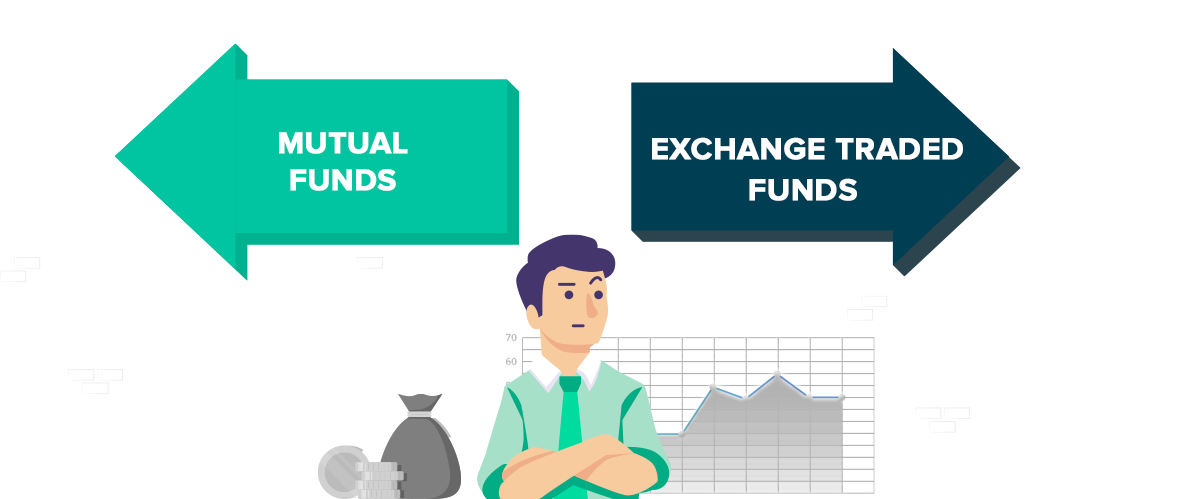Investing in the stock market offers a myriad of options, among which mutual funds and Exchange Traded Funds (ETFs) stand out. Understanding the nuances between these investment vehicles is crucial for investors looking to tailor their portfolio according to their financial goals.
This blog post delves into the key differences between mutual funds and ETFs, aiming to equip you with the knowledge to make informed investment decisions.
Mutual funds vs. ETFs: An Overview
At the outset, both mutual funds and ETFs are investment funds that pool money from various investors to purchase a diversified portfolio of stocks, bonds, or other securities. The primary goal is to reduce individual investment risk through diversification.
However, the structure, management style, and trading characteristics of mutual funds and ETFs differ significantly. Mutual funds are actively managed by professional fund managers who make decisions about buying and selling assets. ETFs, on the other hand, typically track a specific index and are passively managed.
Moreover, mutual funds are bought and sold at the end of the trading day at the net asset value (NAV), whereas ETFs are traded throughout the day on stock exchanges, similar to individual stocks.
These fundamental differences affect how investors may choose between mutual funds and ETFs based on their investment strategy, risk tolerance, and financial goals.
Cost Implications
Expense ratios, which represent the annual fees as a percentage of the fund’s assets, are critical when comparing mutual funds and ETFs. Mutual funds usually have higher expense ratios due to their active management. ETFs often have lower expense ratios as they are passively managed.
Additionally, mutual funds may require a minimum investment, whereas ETFs allow investors to purchase as little as one share. This flexibility makes ETFs an attractive option for investors starting with a small amount.
Investors should also consider the tax efficiency of ETFs, which tend to generate fewer capital gains distributions than mutual funds, potentially offering a tax advantage.
Investment Strategy and Risk
Choosing between mutual funds and ETFs may depend on your investment strategy. Mutual funds, with their active management, are designed for investors seeking to outperform the market, albeit with potentially higher risk and fees. ETFs, being passively managed, aim to match the performance of an index with lower costs and less risk.
Risk tolerance also plays a significant role. ETFs offer the flexibility of intraday trading, allowing investors to respond quickly to market changes. This feature can be both an opportunity and a risk, depending on your approach to investment.
On the other hand, mutual funds provide automatic diversification and professional management, potentially reducing the risk for investors not familiar with stock market intricacies.
Liquidity and Trading
ETFs typically offer higher liquidity than mutual funds because they are traded on an exchange like stocks. This means investors can buy and sell ETF shares throughout the trading day at market prices.
Mutual funds, traded only at the daily NAV, do not offer this level of flexibility. However, this might not be a significant disadvantage for long-term investors who prioritize stable growth over short-term market fluctuations.
Conclusion
When it comes to choosing between mutual funds and ETFs, there’s no one-size-fits-all answer. Each investor must evaluate their financial goals, risk tolerance, and investment strategy. Mutual funds offer professional management and diversification, ideal for those seeking active market participation. ETFs provide cost efficiency, flexibility, and tax advantages, suitable for investors leaning towards a passive investment approach.
The knowledge of these differences and an understanding of personal financial objectives are key to navigating the investment landscape effectively.
In conclusion, whether you lean towards mutual funds or ETFs, educating yourself on the characteristics and implications of each will empower you to make decisions that align with your financial aspirations. Mutual funds and ETFs each have their unique advantages and drawbacks, and the optimal choice depends on individual investment preferences and goals.


